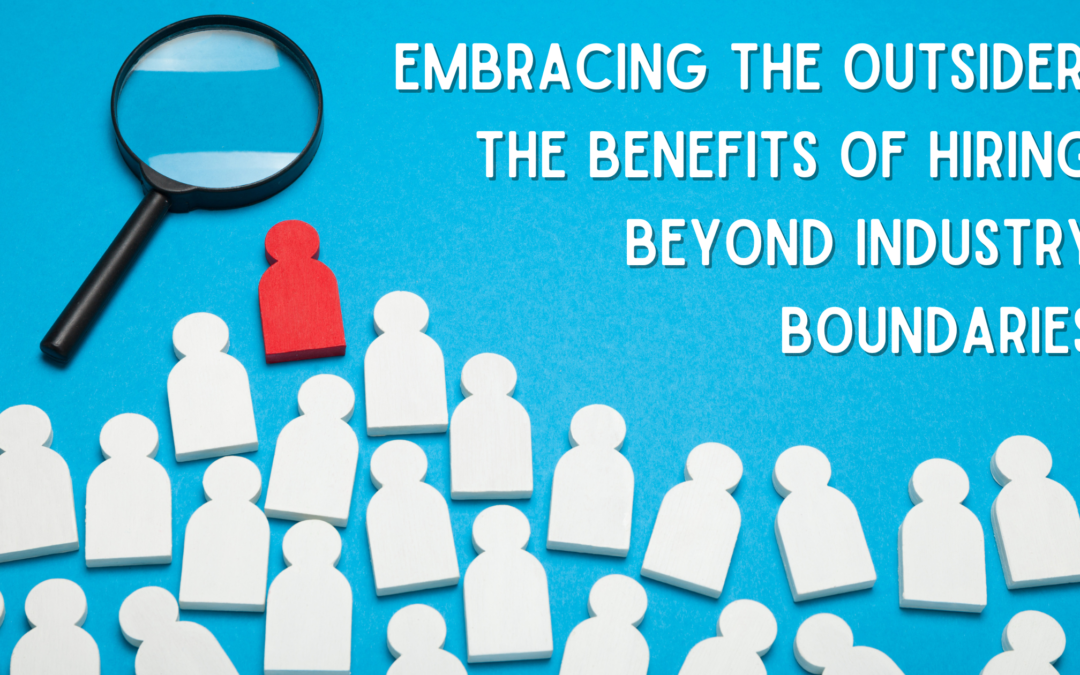As I reflect on my major career shift two years ago from ministry to consulting, and how Next Stage welcomed this “social impact outsider,” to the team, I’m thinking about the mutual ways we’ve benefited from our pairing. I took a risk using my skills and interests in a new environment and, thankfully, it was met with opportunity. I don’t believe that’s the norm and I’d like to see more companies give it a go – for the benefit of someone looking to grow in a new direction and – as I’ll highlight – the benefit of their mission or business.
“Minimum Qualifications”
- A minimum of 3 years of relevant industry experience
- Past role in sustainability-focused communications or in a communications role heavily focused on sustainability
- Knowledge of financial analysis, business planning, marketing planning and execution within big-box format (event management role)
- Bachelor’s degree in marketing, communications, journalism or equivalent
The bullet points above were taken from current LinkedIn job listings for the Charlotte region. I don’t want to call out the company or job title but trust me when I say these “Minimum Qualifications” are unnecessary for the roles they aim to fill.
Why? Because there is so much potential for companies when they consider bringing in talent outside their industry. A common theme for today’s workforce is the struggle to keep employees engaged. And maybe one reason is that hiring managers are overplaying experience and downplaying interest when reviewing their candidate pools. (Or asking AI to do that filtering for them. Sigh.)
Three Benefits
I’ve seen – and experienced – many benefits of hiring from outside the bubble, but I’ll highlight my top three.
Fresh Thinking
Many companies talk about wanting to be “ahead of the curve” or “disruptive.” If that’s you, keep this in mind: On teams where every member shares the same background and experiences, it can create an echo chamber of ideas – not fertile soil where innovation can blossom.
In fact, one hint that it was time for me to move on from ministry communications after 13 years was that I could not come up with a new way to announce our Bible study offerings. I lacked fresh thinking and was struggling to overcome the status quo.
At Next Stage, my newness, curiosity and desire for context led me to ask (many!) questions of my teammates: Why is it done this way? Can you explain this terminology? What’s the vibe?
I brought these learnings to the communication I produced for Next Stage and our clients. I found opportunities to unpack what felt like insider language and new nuggets of insight to draw people in. When you’re “in it” for several years, it’s normal to take for granted that folks will understand XYZ about your program, product or mission. In many instances, I didn’t. I figured other stakeholders might not either, or they needed a refresher. Newness became my value-add to our engagements.
Transferable Skills That Get The Job Done
This seems like a good point to clarify that I’m not saying industry or degree experience isn’t useful, but that it shouldn’t be the most important thing for all jobs, or even listed as a minimum requirement that might hold good talent back from applying. For example, I hold a B.A. in Journalism from UNC, with a concentration in Advertising…from ye olde year of 2003. Folks, I never once had to use Photoshop to complete an assignment! My degree, while foundational for my training, now better indicates my interest than my aptitude for designer roles at an ad agency. (Shout out to Canva!) Meanwhile, there are applicants who pursued other degrees in college and then developed a passion for visual design. What sounds better for your needs?
More than industry, I believe intrinsic skills are universally valuable to an organization. Whether it’s communication, problem-solving, or leadership, candidates from outside your go-to hiring bullpen often possess transferable skills that can be seamlessly applied to new roles. Today’s ever-changing world needs workers who can adapt and navigate unfamiliar terrain so be sure you value those intangible qualities as you review a candidate.
Improved Diversity and Inclusion
Onboarding can be arduous, and I know everyone’s plates are already full. It’s tempting to hire someone who needs to learn less so you can get straight to it, but you might miss the opportunity to enhance the diversity of experience, knowledge and overall skillset of your organization if you go that route. Employees from different industries and perspectives can offer insights into customer needs and preferences from their work that can positively shake up “how it’s always been done” at your organization, providing the breakthrough you’ve been looking for in a program or initiative.
Many companies list DEI as a priority and hiring is a critical element of that focus – but the data proves that opportunity can be harder to come by for candidates who are from diverse racial backgrounds, neurodivergent, or who come from lower socioeconomic backgrounds. From a team culture perspective, embracing candidates from diverse backgrounds and industries fosters a more inclusive workplace culture where all employees feel heard, respected, and empowered to contribute their best work.
For more on building a diverse, thriving workforce, sign up for our upcoming webinar, Community Voice & HR: Listening to Your Employees.
Open the Door
As we reflect on our own experiences and career journeys, let’s consider the benefits of opening doors wider to candidates from outside our industry – and being welcoming teammates to these candidates.
The rewards for both the individual and the organization are worth it.
